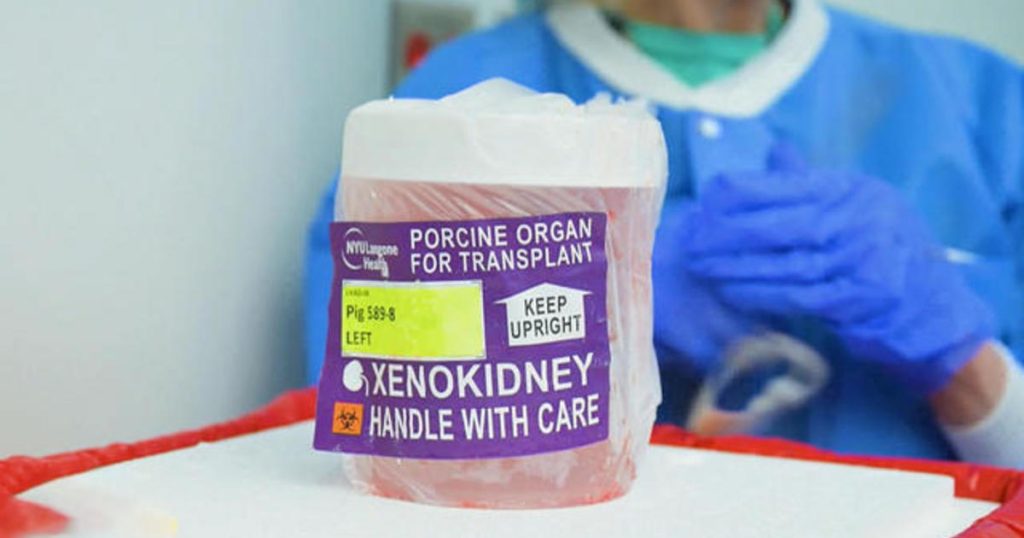A woman in New Jersey recently became the first female recipient of a kidney transplant from a pig, making her only the second living human to undergo this groundbreaking procedure. With over 89,000 Americans currently on the waiting list for a donor kidney, this innovative transplant represents a new hope for patients in need of life-saving organ transplants. The procedure, known as xenotransplantation, involves transplanting organs from animals into humans, a practice that has been researched and developed as a potential solution to the shortage of donor organs available for transplantation.
The recipient of the pig kidney transplant, a 57-year-old woman from New Jersey, had been suffering from kidney failure and had already gone through multiple rounds of dialysis before undergoing the experimental procedure. The successful transplantation of the pig kidney into the woman’s body marks a significant milestone in the field of xenotransplantation and could potentially revolutionize the way organ transplants are performed in the future. By utilizing organs from animals, such as pigs, as a source of donor organs, this procedure could help alleviate the shortage of human donor organs and provide more patients with access to life-saving transplants.
Xenotransplantation has long been a topic of research and debate in the medical community, with scientists exploring the possibility of using animal organs to address the critical shortage of human donor organs. Despite the promising results of the pig kidney transplant, there are still significant challenges and risks associated with xenotransplantation, including the potential for organ rejection and the transmission of diseases from animals to humans. However, the successful outcome of this procedure provides hope for the future of organ transplantation and encourages further research and development in the field of xenotransplantation.
The woman who received the pig kidney transplant is now recovering well and is expected to have a better quality of life as a result of the procedure. With her new kidney functioning effectively, she will no longer have to rely on dialysis and can look forward to a healthier future. The success of the transplantation is a testament to the advancements in medical technology and the dedication of healthcare professionals who are working tirelessly to improve the outcomes of organ transplantation for patients in need.
As the demand for organ transplants continues to rise, innovative approaches such as xenotransplantation offer new possibilities for expanding the availability of donor organs and saving more lives. With over 89,000 Americans waiting for a kidney transplant, the success of the pig kidney transplant highlights the importance of continued research and investment in the field of xenotransplantation. By exploring new avenues for organ transplantation and harnessing the potential of animal organs, medical researchers can help meet the growing need for life-saving transplants and provide hope for patients seeking a second chance at life.
Overall, the pig kidney transplant represents a significant breakthrough in the field of organ transplantation and offers hope for patients waiting for life-saving transplants. By successfully transplanting a pig kidney into a human recipient, researchers have demonstrated the potential of xenotransplantation as a viable solution to the shortage of donor organs available for transplantation. As the woman from New Jersey continues to recover and regain her health, the success of the procedure serves as a powerful reminder of the importance of innovation and collaboration in advancing medical research and improving patient outcomes.


